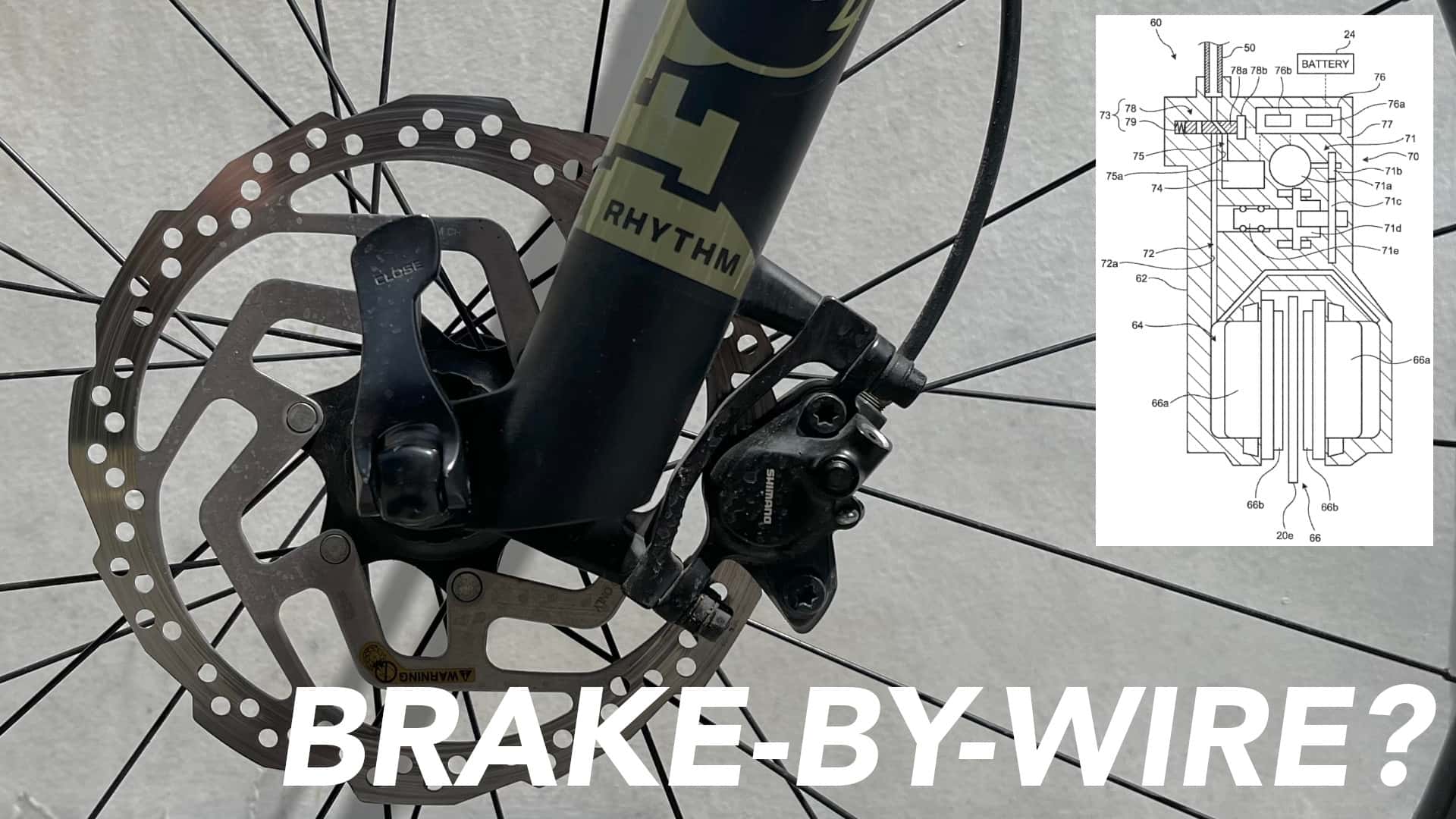
SHIMANO JUST PATENTED A BRAKE-BY-WIRE SYSTEM: ARE MOTORCYCLES NEXT
Fly-by-wire technology has been around for decades in planes and cars. But is it something the bicycle or motorcycle industry really needs?
The mobility industry is driven by technology and innovation. This is an inescapable truth that all manufacturers adhere to, as they try to bring us consumers the most efficient, most high-tech, most performance-oriented vehicles known to man. It doesn’t really matter where you look, either. From bicycles to supercars, pretty much all manufacturers are obsessed with cutting-edge tech.
Shimano, for example, is the latest to hop on the fly-by-wire bandwagon, recently patenting electronic brakes for bicycles. This technology takes a page off of Shimano’s existing DI2 wireless shifting technology and means that we could eventually bid farewell to brake cables and hydraulic hoses.
And while the worst-case scenario for a dead battery on your bike’s derailleur is the inability to change gears, it seems that there might be more serious consequences to pay if the battery on your brakes fails.
The fully electronic braking system eliminates a physical connection between the brake lever and the calipers.
Nevertheless, it seems that Shimano is adamant about making this technology a reality. The company has highlighted three potential designs—an electric-hydraulic hybrid system, a mechanical-electric hybrid system, and a fully electric system.
Naturally, the first two have their failsafes, as should the battery die, the rider ultimately still has a mechanical connection between the brake lever and the bike’s brakes. And so, chances are these two systems will be used to provide intelligent braking features, such as ABS and hill-descent control, on fancy electric cargo bikes.
While all that’s cool and all, it’s undoubtedly the fully electric system that raises the most eyebrows. I’m sure none of you want to imagine what it would be like to completely lose your brakes while hurtling down a hill at 20 miles per hour—though I’m sure a lot of us (myself included) have experienced this firsthand, most likely fueled by the reckless abandon of adolescence.
Shimano's electronic braking system is wireless.
Shimano’s fully electric braking system is also wireless, so there’s literally no physical connection—not even an electrical wire—connecting the handlebar-mounted levers to the calipers and rotors on the bike’s wheels. For people with trust issues, this will surely sap away confidence when riding at a spirited pace.
Such technology may be useful in complicated cargo e-bikes, and perhaps some recumbent setups with extra-long wheelbases. But for your regular old commuter, road, or mountain bike, one can’t help but think that it may just be a bit too excessive.
This brings me to my next point, and has me asking the question: do we really need this level of technology—let alone for bicycles? Bicycles were designed to be the next-simplest means of transportation to walking, and now, it seems that they’re becoming needlessly complex.
Sure, I love my performance-focused mountain bikes with Fox suspension and fancy SRAM drivetrains, but personally, I like to keep my bikes as analog and mechanical as possible. I want to be able to just take it out of my garage and go for a ride without having to worry about charging the batteries on my shifter, let alone my brakes.
And so the law of diminishing returns definitely applies when it comes to bicycle tech, and perhaps to the whole mobility industry, too. Everyone seems to be so obsessed with making everything digital—from the throttle-by-wire systems on pretty much all cars and motorcycles, to the crazy wireless steering on the Tesla Cybertruck, and now, electronic brakes from Shimano.
And what if this comes to motorcycles next?
What do you think—would you fit these fancy wireless brakes on your bicycle? More importantly, would you feel confident taking your bike on long trips, across all sorts of terrain, and in all sorts of weather, knowing your ability to come to a stop is completely dependent on a bunch of sensors and batteries not screwing things up?
How Much Tech Is Too Much Tech?
2024-06-21T12:36:30Z dg43tfdfdgfd